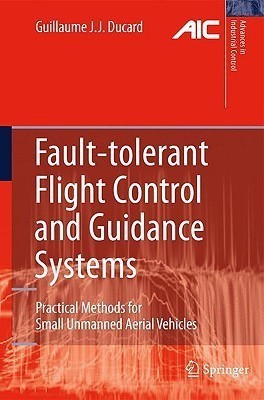Fault-tolerant Flight Control and Guidance Systems(English, Hardcover, Ducard Guillaume J. J.)
Quick Overview
Product Price Comparison
TheseriesAdvancesinIndustrialControl aimsto reportandencouragete- nologytransferincontrolengineering.Therapiddevelopmentofcontrolte- nology has an impact on all areas of the control discipline. New theory, new controllers, actuators, sensors, new industrial processes, computer methods, new applications, new philosophies , new challenges. Much of this devel- ment work resides in industrial reports, feasibility study papers and the - ports of advanced collaborative projects. The series o?ers an opportunity for researchersto present an extended exposition of such new work in all aspects of industrial control for wider and rapid dissemination. Autonomy for aerial, land, and marine (surface and underwater) vehicles is an ever-expanding ?eld of industrial control engineering in which there is signi?cant international interest. Currently, there are many prototypes and working autonomous vehicles in all the ?elds of application; however, some areas are better developed than others. Meanwhile in the control conference literature it is possible to see that frontier research has reached the pr- lems of working with groups, convoys or swarms of cooperating autonomous vehicles.The tasks that autonomous mobiles can tackle are very often either h- ardous,or,conversely,routine,wheretheuseofaninsitu humanoperatoristo be avoided, or simply technically (and economically) unnecessary. Typically, such tasks involve inspection, monitoring, and detection. For example, - manned aerial vehicles (UAVs) can be used to perform airborne sea searches, inspect long-distance power lines or oil and gas pipelines (particularly those traversing hostile, or hazardous terrain), monitor environmental or meteo- logical variables and survey crop production and forestry resources. This list is by no means exhaustive and UAVs can perform many other valuable tasks.


